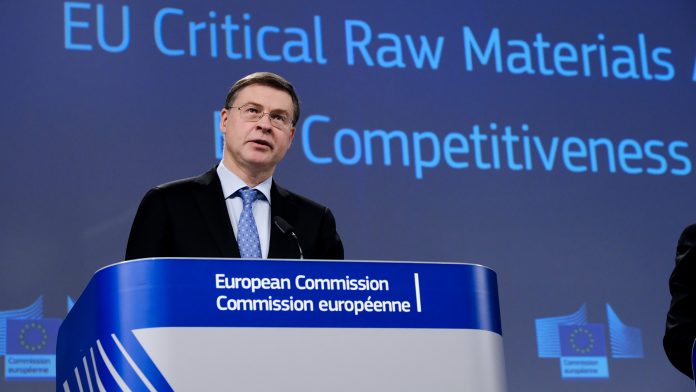The European Commission and Chile have signed a landmark deal to develop sustainable critical raw materials supply chains.
The critical raw materials partnership was struck at this year’s Community of Latin American and Caribbean States Summit (EU-CELAC) summit in Brussels.
Commissioner Thierry Bretonand the Minister of Foreign Affairs of Chile, Alberto van Klaveren Stork, signed a Memorandum of Understanding (MoU) to reinforce sustainable critical raw materials supply chains between the EU and Chile.
The partnership aligns with the aims of the EU’s Global Gateway strategy and Critical Raw Materials Act, helping to further cooperation in the sector.
The initiative will forge a competitive and sustainable critical raw materials industry, creating lucrative job opportunities to boost the mining sector and local communities.
Speaking on the development, Ursula von der Leyen, President of the Commission, said: “It is a great pleasure for me to witness the signing of this partnership for the development of sustainable raw materials value chains between the EU and Chile.
“The Global Gateway will be one of the main drivers of our evolving partnership. We are like-minded, we share the same values, and we are partners of choice to become key global players in the clean energy and digital transition.”
How will the agreement yield sustainable critical raw materials?
Critical raw materials are essential in a range of sectors, such as digital, aerospace, defence, and global decarbonisation, such as manufacturing electric vehicles.
However, as demand for these essential materials is forecasted to skyrocket in the coming years, establishing robust value chains will be essential.
Currently, Europe relies on imports for the vast amount of these resources, which exposes the EU to supply chain disruptions and volatile markets.
The new agreement outlines five key areas to ensure long-term, robust value chains, which include:
- Integrating sustainable raw materials value chains, including through joint development of projects, new business models, promotion and facilitation of trade and investment linkages;
- Cooperation on research and innovation along the raw materials value chains, including minerals knowledge and the minimisation of environmental and climate footprint;
- Cooperation to leverage environmental, social, and governance (ESG) criteria and align with international standards;
- Deployment of hard and soft infrastructure for project development while minimising their environmental and climate impact; and
- Strengthening capacities, vocational education and training and skills development along sustainable raw materials value chains in accordance with international labour standards.
An operational roadmap will ensure the partnership’s success
The EU and Chile also announced they will develop an operational roadmap that will include cooperation actions to be performed by relevant members from EU Member States and Chile.
The roadmap will be supported by the EU’s Global Gateway Investment Agenda for Latin American and the Caribbean
The development is the latest in a string of partnerships for sustainable critical raw materials, with the EU also establishing ties with Canada, Ukraine, Kazakhstan, Namibia, and Argentina.









